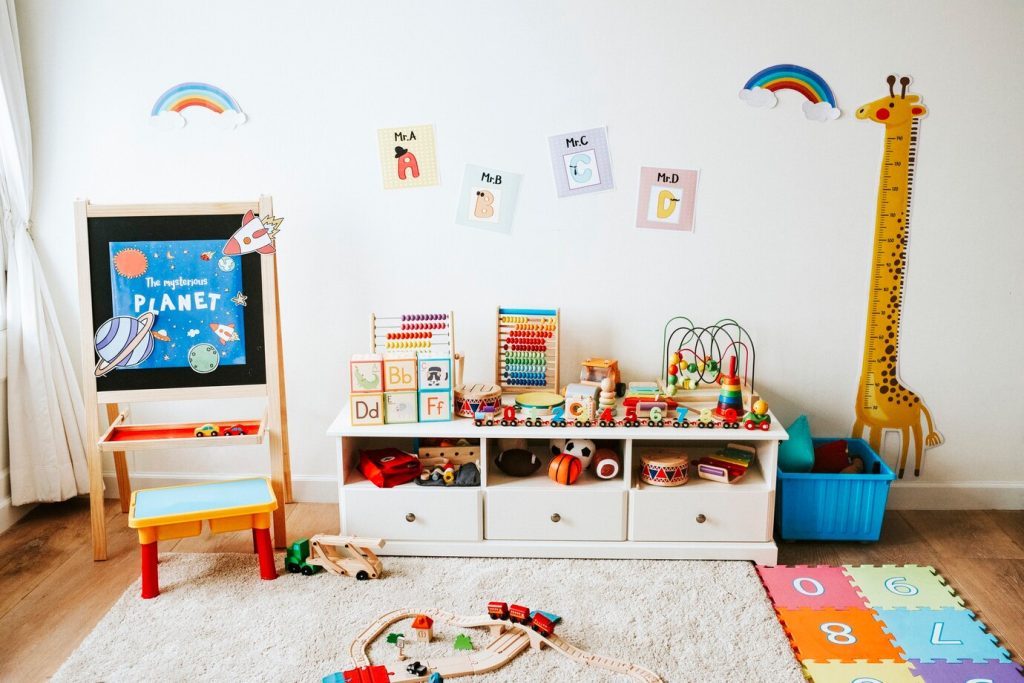
Your Child’s Nursery School: Benefits and Potential Challenges

Choosing the right childcare for your little one is a big step, and it’s completely normal for parents to feel unsure about what’s best. Deciding whether a nursery school is the right fit means looking at both the benefits and the possible downsides, always keeping in mind what works best for your child and your family’s unique needs.
According to a government report from 2023, around 72% of children aged 0 to 4 were enrolled in some type of formal childcare. Nursery school remains a popular choice for many families, but what works for one child might not be right for another.
While every family’s situation is different, we’ve listed some of the most common positives and challenges children may face when starting nursery.
Why Choosing a Nursery Is a Big Decision
Starting childcare is a big step for both children and parents. It marks the beginning of a new chapter, where your child begins to explore the world outside of home and learn how to be with other children and adults. That’s why choosing a nursery school isn’t just a practical decision—it’s an emotional one too.
Every child is unique, and every family has its own rhythm, values, and needs. A nursery school might be the first place your little one spends time away from you for a few hours each day. It’s natural to feel a mix of excitement and nervousness about this change. As a parent, you want to be sure that your child will be cared for, feel safe, and be supported as they grow.
Taking time to think about what matters most—whether it’s the staff’s warmth, the learning activities, or the daily routine—can help you feel more confident in your choice. Remember, there’s no perfect answer, just the best fit for your family.
Is Nursery Right for Every Child?
Every child is different, and that’s something to celebrate. Some little ones thrive in group settings and jump right into the fun of a nursery school environment. Others may take more time to adjust or may feel more comfortable in smaller, quieter spaces. And that’s completely okay.
Choosing whether to send your child to nursery school depends on many factors—your child’s personality, their readiness to be around others, and your family’s daily routine or needs. Some children benefit from the structure, play, and early learning opportunities, while others might do better starting a bit later or in a different kind of setting.
There’s no one “right” path. What matters most is finding what feels best for your child’s happiness and development, and what supports your family’s overall well-being. Trust your instincts, and don’t be afraid to explore different options until you find what works for you.
The Benefits of Nursery School for Young Children
Sending your child to a nursery school is a big milestone, and it often comes with many beautiful benefits that help them grow in all areas of life. From building friendships to developing confidence, the experience can be incredibly enriching. Let’s take a closer look at some of the most common and meaningful advantages.
1. Learning to Connect: Building Social Skills
One of the most valuable parts of nursery school is the chance for children to spend time with other kids their age. Through play, they learn how to share, take turns, express emotions, and solve little problems together. These everyday moments—like passing a toy, saying “sorry,” or helping a friend—are big lessons in kindness, empathy, and teamwork.
As they interact with peers, children also gain the confidence to make friends and become part of a group. These social skills are the foundation for how they’ll relate to others later in school, in friendships, and beyond.
2. Joy in Companionship: Being Around Other Children
For many children, especially those without siblings, nursery school offers a special opportunity to enjoy the company of other little ones. Playing side-by-side or together in games helps them feel included and connected. Even when they’re very young and mostly observe each other, children are learning all the time—by watching, listening, and copying.
In our world today, where more families are choosing to have one child, a nursery setting can be especially helpful for giving children a space to develop social awareness and comfort in group settings.
3. A Place to Grow Minds: Early Learning Through Play
At nursery school, learning isn’t just about sitting still and listening—it’s hands-on, fun, and full of imagination. The curriculum in registered nurseries supports early development through play. That means your child might be building towers, painting pictures, or acting out stories, all while learning important concepts like numbers, colors, and language.
The environment is thoughtfully designed to spark curiosity and help children meet milestones in their own time. Whether it’s singing songs or exploring nature, these playful activities encourage creativity, focus, and early literacy.
4. Building Emotional Strength: Learning Self-Regulation
One of the hidden benefits of a nursery setting is how it helps young children start to understand and manage their feelings. A study by the University of Oxford in 2021 showed that children who attend nursery or preschool often show better self-control and cooperation. They’re more likely to take turns, follow rules, and bounce back from frustration.
This is because being part of a group gives them lots of chances to practice these skills with gentle support from caring adults.
5. Growing Independence and Confidence
Nursery school also gently encourages children to do things for themselves. Whether it’s putting on their coat, choosing what game to play, or helping tidy up, every small step helps build independence. Teachers guide them with patience and encouragement, helping children feel proud of their choices.
As they solve simple problems or make new friends, their confidence blossoms. These moments of achievement—big or small—help form a strong sense of self-worth and belief in their abilities.
6. Getting Ready for the Big Step: School Preparation
Another big advantage of a nursery is how it prepares children for primary school. The routines—like arriving on time, being part of group activities, and following instructions—feel familiar by the time school starts. They’ve already practiced being away from home, playing cooperatively, and focusing on tasks, making the transition smoother and less overwhelming.
Many nurseries also introduce early education through songs, stories, and playful lessons. Children may start learning letters, numbers, or even how to hold a pencil—all in a way that feels fun and exciting. This can give them a head start and make school feel like a natural next step.

Potential Challenges Children May Face in Nursery School
While nursery school offers many wonderful benefits, it’s also completely normal for families to face a few bumps along the way. Every child is unique, and their experience may include a mix of excitement and adjustment. Understanding some of the common challenges can help you prepare, support your child, and feel reassured that you’re not alone in the journey.
1. Separation Worries: Missing Home and Parents
For many little ones, being apart from their parents for the first time can feel overwhelming. The first few days—or even weeks—at nursery school might bring tears or clinginess. This is known as separation anxiety, and it’s a completely normal stage of development.
Children often adjust with time, especially when they’re met with comfort, patience, and consistency. Staff members are experienced in helping children feel welcome and safe, gradually building trust and a sense of belonging.
2. Overstimulation: So Much Going On!
Nursery can be full of colors, sounds, people, and activities. For some children, especially those who are sensitive or shy, this busy environment might feel too much at first. They might come home tired or even a little grumpy after a day of learning and social interaction.
It helps to give your child time to rest and recharge at home. With support, most children gradually learn to manage all the stimulation and even start to thrive in this lively space.
3. Getting Sick More Often
A common concern among parents is the increase in minor illnesses once a child starts nursery. Because children are still building their immune systems, it’s not unusual for them to catch more colds or tummy bugs when they begin spending time with others.
While it can be frustrating in the short term, these minor illnesses help strengthen a child’s immunity over time. Nurseries also follow health and hygiene guidelines to help reduce the spread of germs.
4. Not Every Day Is Easy
Just like adults, children have good days and tough ones. Some mornings they may happily run inside to play, and other times they may feel unsure or moody. This back-and-forth is part of growing up and learning how to handle new situations.
It’s helpful to create consistent routines, stay calm and encouraging, and talk openly with the nursery staff if anything feels off. Together, you can find ways to support your child’s emotional needs.
5. Adapting to Rules and Structure
At home, children often have flexible routines. But nursery introduces more structure—like snack times, tidy-up times, and group activities—which can be a big adjustment. Some children may resist at first or struggle with listening to group instructions.
With guidance and repetition, most children begin to understand what’s expected of them. They learn that rules help keep everyone safe and activities run smoothly, and over time, these boundaries provide comfort and predictability.
6. The Feeling of Letting Go for Parents
Sometimes the hardest part of starting nursery is the emotional experience for parents. Trusting someone else to care for your child, even for a few hours, can feel daunting. You might wonder if your child is happy, eating well, or being understood.
These feelings are completely valid. Building a good relationship with nursery staff, asking questions, and checking in regularly can help ease your mind. Over time, seeing your child grow, smile, and succeed in their nursery journey can bring immense comfort and pride.
Conclusion: Trusting the Journey, One Step at a Time
Deciding whether nursery school is right for your child is never a simple choice, and that’s okay. Every family’s path is unique, and what matters most is finding what feels safe, nurturing, and right for your little one. From the many joys and learning opportunities to the natural ups and downs, the nursery experience can be a powerful step in your child’s growth—and in your journey as a parent too.
By understanding both the benefits and challenges, you’re already setting the foundation for a thoughtful, supportive start. Whether your child embraces it immediately or needs a bit more time, your love, patience, and encouragement will make all the difference.
Read our latest article: “5 Things to Watch For Choosing the Right Childcare Nurse“